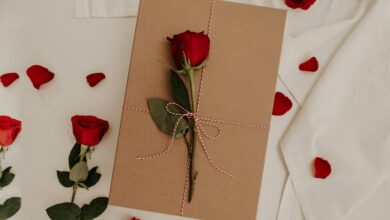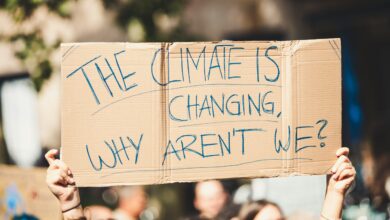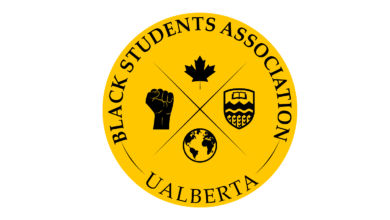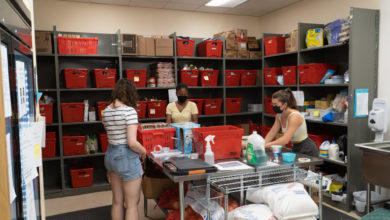Crowning Glory: Unlearning ‘good hair’ and embracing authenticity
Black hair needs to be celebrated — the harmful rhetoric regarding natural hair isn't something we deserve.
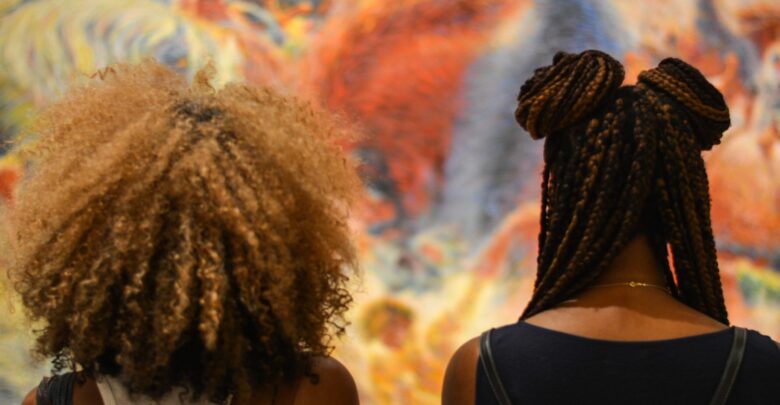 Supplied
SuppliedThis guest column is written through a partnership with the University of Alberta’s Black Students’ Association and The Gateway.
“I am not my hair,” India Arie, the Grammy-winning artist, said it best. For many black girls and women, their hair holds a deeper significance beyond the surface. Each coil, curl, or braid is a unique expression of identity and culture. It’s a journey of self-discovery, self-acceptance, and unlearning. The process of unlearning involves shedding connotations that have adversely clouded perceptions around black hair.
In this age of acceptance and inclusivity, we must unlearn the negative mindset surrounding hair standards and preferences inherited from earlier generations. Society has upheld harmful expectations for far too long — it’s time to confront and dismantle them.
We must adopt a culture of understanding, recognizing that each of us is embarking on a personal odyssey to redefine the standards of what constitutes good hair. Texturism — the preference for looser curl patterns — doesn’t have a place in a world that values diversity. It perpetuates discriminatory stereotypes about beauty, unfairly shaping perceptions and reinforcing biases against those with tighter curls. That’s unacceptable.
At a young age, I learned to hate my natural hair It was something I was taught — growing up, I often received compliments on my treated hair. Friends, family, and strangers raved about its thickness and most enthusiastically, its length. I carried a lot of pride in that hair. You should’ve seen me on the playground when my hair was out of its protective style. There wasn’t a day I didn’t pretend to be Rapunzel.
However, I knew people weren’t praising my hair, but rather what I had done to it. Had I not applied chemical relaxers, my hair would never have looked that long. It became evident that the compliments on my hair were driven by the changes I made to it, and so, I learned to hate my natural hair. Their words taught me that my hair was only valuable because it had been manipulated to look a certain way. I started to draw a distinct line between my natural hair and the hair everyone else liked. I began associating the best parts of myself with the hair that secured the most compliments.
Eventually, I began to internalize their words. To me, it was a testament to my ability to conform to Western beauty standards. This was especially noticeable in schools and workplaces where few people looked like me. However, formation of this perception of beauty did not happen in isolation.
Media representation played a pivotal role, especially in classic Disney shows from the 2010s. We rarely see stars like China Anne McClain, Coco Jones, and Keke Palmer with their hair in its natural, undefined state. Undeniably, this noticeable absence conveyed a message that suggested our natural hair was, in some unspoken way, meant to be tucked away and not prominently featured. Media, through the omission of characters embracing their curls, reinforced society’s preference toward black girls whose hair aligned with the norm — straightened or easily manageable.
It’s strange how something as simple as hair can have such a profound impact on our psyche. Looking back, it’s clear that society shaped my feelings towards my hair and culture I grew up in. From an early age, I absorbed the idea that beauty was synonymous with long, flowing hair. I saw any alternative less desirable. This narrative taught me to undervalue the natural beauty of my hair, neglecting the time and effort it deserved.
The concept of good hair became deeply ingrained in my worldview. I considered looser, more manageable curl patterns the ideal. Unfortunately, the impact extended beyond personal preferences. Natural hair — a beautiful expression of identity — was labeled unprofessional by employers and the workforce. This biased judgment has resulted in many instances where black women have faced job loss or refusal due to their natural hair. These expectations not only affected my self-esteem but also created a harmful narrative that perpetuated a narrow definition of beauty. Many black girls, including myself, mold ourselves into a box that never wanted us in the first place.
Thus, conversations surrounding black hair care are vital, as they explore the nuances of self-identity. These conversations are not exclusive to women — Black men, too, grapple with societal expectations surrounding their hair. Undeniably, the struggle to find easily accessible hair care services is a common experience, highlighting the importance of inclusivity in these conversations. It’s a call to recognize that everyone, regardless of gender, deserves the tools to embrace and care for their natural hair.
This rebellion against conformity is a celebration of our identities. As I write this, I acknowledge that I’m still navigating the labyrinth of self-love for my hair in its unaltered state. This is a crusade to rewrite and unlearn toxic narratives. Black hair, in all its crowning glory, remains a symbol of strength, resilience, and beauty.
In response to these challenges, the University of Alberta’s Black Students’ Association (UABSA) and YMCA Community Action Network (YCAN) have joined forces to present Crown & Curls, an event in March 2024. Crown & Curls is designed to celebrate the beauty of black hair and address the significant impact it has on mental health. This event is a beacon of empowerment, education, and community building. With this event, I hope to highlight the importance of mental well-being in the context of Black hair care. Through insightful hair care tips, hands-on demonstrations, and interactive sessions, Crown & Curls goes beyond the surface, actively promoting self-love, cultural appreciation, and a positive mindset. As the event unfolds, participants will engage in practical activities and gain access to resources and connections within the community.
The UABSA is committed to empowering individuals and reshaping the narrative surrounding Black hair. We want to promote inclusivity and celebrate every unique curl and texture. We understand the importance of embracing individuality and diversity within the Black community, and we are honoured to be a part of a greater movement. Together, we can redefine what it means to have beautiful, healthy, and thriving hair.

